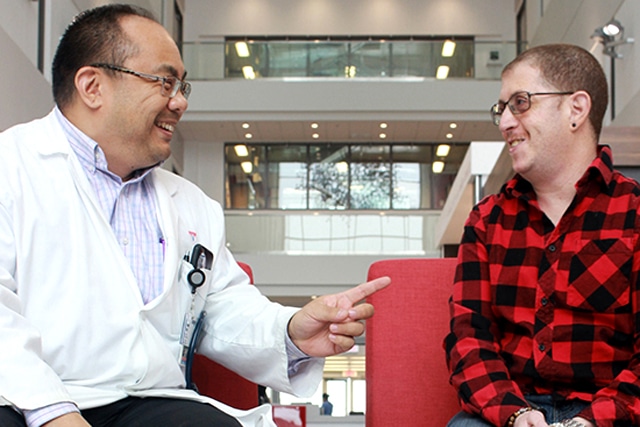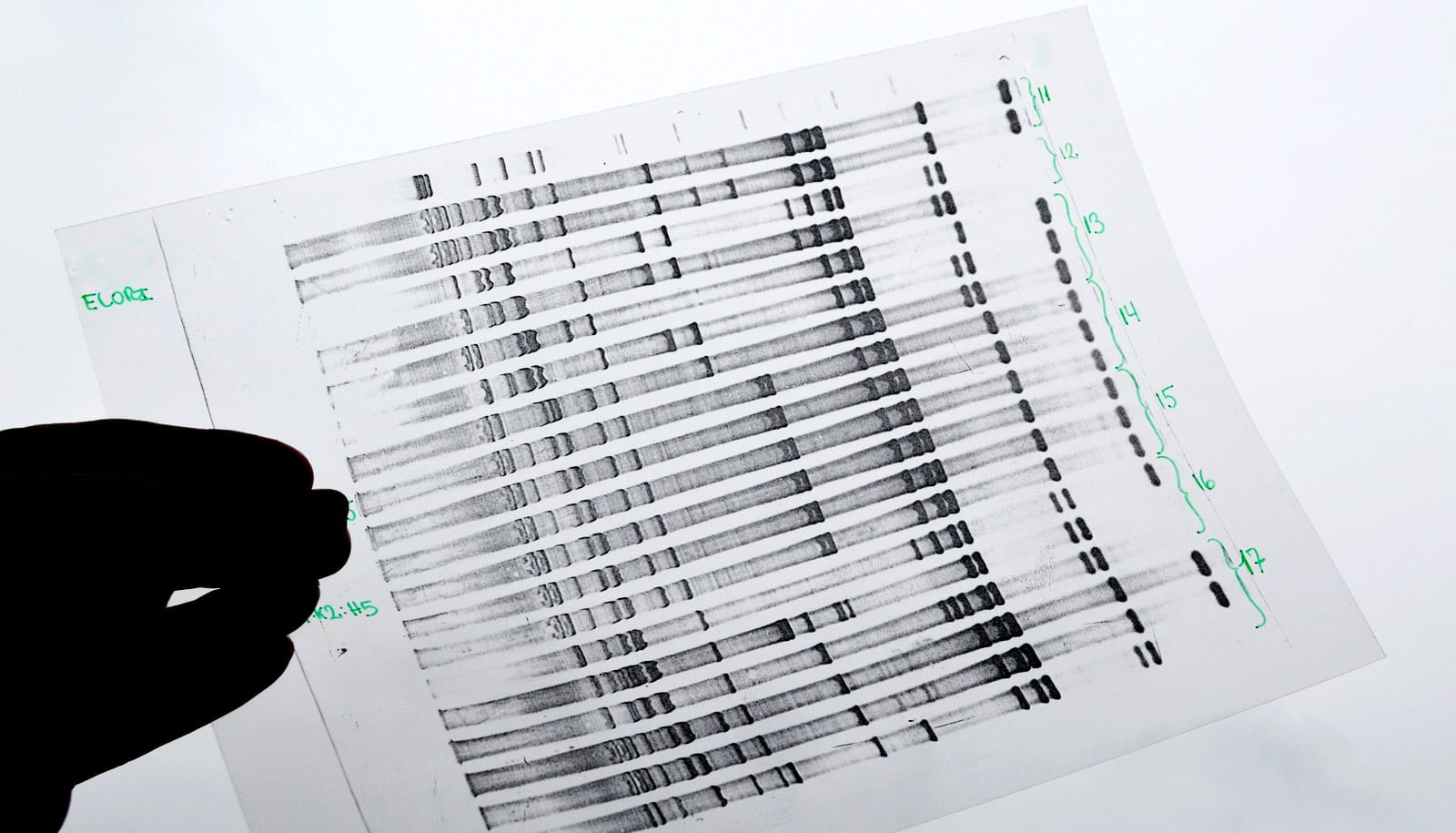Researchers have identified the genetic mutation responsible for one patient’s serious health problems, finally solving a medical mystery that has endured for over 30 years.
The discovery has led to a therapy that could help treat people who have problems related to the immune system, whether they are genetic or due to a transplant or an illness.
“In the laboratory, we demonstrated that a molecule called morpholino antisense oligonucleotide could correct this kind of genetic anomaly and allow the patient’s immune system to function properly,” explains Donald Vinh, a researcher at the Research Institute of the McGill University Health Centre and principal author of a new study in the Journal of Allergy and Clinical Immunology.
Steven Francis has dealt with significant health issues his whole life. Followed at the McGill University Health Centre since childhood, he has faced sinus infections, fungal infections, inflammations of the colon, shingles, respiratory problems, renal issues, and impeded growth, throughout all of which doctors were unable to discover an underlying cause; they suspected it was genetic, but were unable to prove it. His family consulted specialists in the United States without success.
How smoking spared a man from anemia
Vinh first examined the case in 2012. “When this patient was referred to me, I went over his entire file in detail, covering some 30 years and literally filling two large cardboard boxes. I also looked at his family history. Since the 1980s, many new immune deficiencies have been identified, and I was able to apply the knowledge from these advances to solve the case,” he says.

Vinh discovered that Steven had a mutation on a gene that is critical for the proper function of the immune system, called ZAP70. It synthesizes a protein of the same name that helps activate our T cells. Without the ZAP70 protein, the body can’t defend itself effectively against most infections.
“A mutation on this gene is known to be fatal, and the only treatment available up until now has been a bone marrow transplant that must take place before the age of five. With this new discovery, we have found out that genetic mutations of this kind are also found in adults, which could lead to tremendous advances in research, Vinh says.
“Solving this mystery has opened a new door into the way that the scientific community will look at immune system deficiencies.” The discovery is all the more remarkable considering this gene cannot be studied in mice.
Software maps immune system in 17 days (not 106 years)
Steven is now 35 years old. In his case, researchers now understand exactly where to find the mutation and how it behaves. His specific mutation subtly affects the slicing of the gene and doesn’t affect the amino acid sequence that synthesizes the ZAP70 protein.
Inspired by a little-known treatment used in cases of hypercholesterolemia, Vinh successfully developed a molecule that exclusively blocks the mutation while allowing the protein to be synthesized.
In the process of helping Steven, researchers now know that it is possible to create a molecular therapy that might improve the human immune system.
For Vinh, the battle is still only half won: while all the pieces of the puzzle might be found, they haven’t yet been fully put together.
“There are definitely more steps to take before we can test this treatment. For one thing, we have to convince the industry to support us. When Steven can finally get the benefit of the treatment, I’ll be able to count this as a victory.”
Source: McGill University



